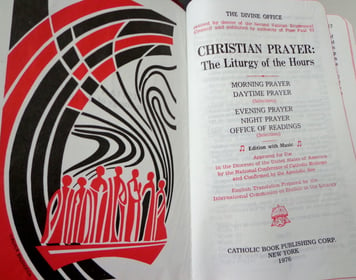
Mental Health
We invite you to discover, belong, and journey with us in faith. Welcome home to the Ancient Catholic Church—where tradition meets mission, and community flourishes.
The Sacrament of Reconciliation (Confession) and the Eucharist are profound sources of spiritual renewal. They can bring peace to troubled hearts and help individuals feel God's grace during difficult times.
Practices like prayer, meditation, and reading Scripture can provide comfort and calm to individuals grappling with mental health concerns. Many find peace in praying the Rosary or meditating on the Psalms.
Prayer and Contemplation
Access to Community Support
The Church advocates for the use of professional psychological and medical support. Many Catholic charities and diocesan organizations collaborate with mental health professionals to provide counseling, therapy, and psychiatric care.
Sacraments and Spiritual Healing
The Church advocates for the use of professional psychological and medical support. Many Catholic charities and diocesan organizations collaborate with mental health professionals to provide counseling, therapy, and psychiatric care.








Professional Collaboration
The Church’s Role in Mental Health Support
The Church provides various resources for those in need of mental health services. Here are key aspects of how the Catholic Church can offer support:
In times of mental health challenges, turning to the Catholic Church can provide a source of solace and support. Recognising the profound dignity of every individual, the Church offers a holistic approach that integrates spiritual care with professional mental health services, encouraging healing on multiple levels.
Understanding Mental Health Through the Catholic Lens
The Ancient Catholic Church acknowledges mental health struggles as a part of the human experience, affirming that they do not diminish a person's worth in God's eyes. Challenges such as anxiety, depression, and emotional distress are seen not as spiritual failings but as opportunities for growth and healing. The Church teaches that suffering can be united with Christ's, offering hope and redemption even in the darkest moments.
Finding Support Through Faith and Care


Where to Find Help
If you or someone you know is in need of mental health support, consider reaching out to your local parish or diocese. They may have pastoral care teams or partnerships with Catholic organizations offering mental health services. Some well-known Catholic organizations, such as Catholic Charities, provide counselling services across the globe.
Additionally, resources like the "National Catholic Partnership on Disability" or diocesan mental health ministries often have information on faith-based mental health programs.


A Message of Hope
Remember, seeking help is a sign of strength. The Church encourages you to embrace the healing process with courage, knowing that God's love for you is unwavering. Whether through prayer, the sacraments, or professional care, you are never alone on this journey.

Reach Out for Mental Health Support
If you are struggling, please reach out to a trusted priest, counsellor, or loved one. May you find peace, healing, and the support you deserve.
Readings from Scripture to Help Mental Health
Below is a curated list of biblical passages and narratives—divided by Old and New Testament—that many find relevant when seeking comfort, guidance, and emotional support in times of mental and emotional distress. It’s important to note that while these scriptures were written in ancient contexts, they continue to offer timeless insights that many interpret as supportive of mental well‐being. They address themes like anxiety, despair, loneliness, inner healing, and the promise of renewal.
Old Testament References
Psalms (A Treasury of Emotion and Comfort):
The Psalms are perhaps the richest source in the Bible for expressing raw emotion as well as hope. They voice anguish, despair, and yet deep trust in God’s comfort.
Psalm 34:18:
"The LORD is close to the broken-hearted and saves those who are crushed in spirit."
– A direct reminder that even in moments of deep pain, you are not alone.Psalm 42:5, 11:
"Why, my soul, are you downcast?... Put your hope in God, for I will yet praise him..."
– An inner dialogue that acknowledges feelings of despondency while urging a turn toward hope.Psalm 55:22:
"Cast your burden on the LORD, and he will sustain you."
– An invitation to release the weight of anxiety and trust in a higher care.Psalm 94:19:
"When anxiety was great within me, your consolation brought me joy."
– Affirmation that even in overwhelming anxiety, divine comfort can restore peace.
Proverbs (Wisdom for Emotional Balance):
Proverbs offers short yet impactful sayings that link emotional well-being with everyday experiences.Proverbs 12:25:
"Anxiety in a man's heart weighs him down, but a good word makes him glad."
– This underscores the healing influence of encouraging words and community support.Proverbs 17:22:
"A cheerful heart is good medicine, but a crushed spirit dries up the bones."
– A poetic reminder that an attitude of joy can be as restorative as physical medicine.
Isaiah (Assurances Against Fear and Promises of Renewal):
The prophetic writings offer hope that goes beyond present hardships.Isaiah 26:3:
"You will keep in perfect peace those whose minds are steadfast, because they trust in you."
– A verse that links mental steadiness and trust with the gift of peace.Isaiah 41:10:
"So do not fear, for I am with you; do not be dismayed, for I am your God..."
– An encouragement to confront fears with the assurance of constant divine presence.Isaiah 35:1:
"The desert shall rejoice, and blossom like the crocus."
– Metaphorically speaking, it reminds us that barrenness and despair can give way to renewal and hope.
Narratives of Personal Struggle and Renewal:
Biblical figures often experienced deep emotional turmoil, offering a template for understanding personal struggle.Elijah’s Despair (1 Kings 19:4–8):
After great victories in faith, the prophet Elijah flees, overwhelmed by despair. In the solitude of the wilderness, he encounters God’s gentle instruction to "be still" and find strength anew. His experience illustrates that even the mightiest can feel forgotten, and that a pause for rest and nourishment is both necessary and divinely provided.Job’s Trials:
The story of Job is a profound exploration of human suffering, loss, and the pain of existential questioning. Though not offering a simple resolution, the dialogues in the Book of Job invite readers to recognize that suffering is part of the human condition—and that perseverance, honest questioning, and eventual restoration are possible.
New Testament References
Jesus’ teachings and healing ministry provide a compassionate model for handling emotional burdens.
Matthew 11:28–30:
"Come to me, all you who labour and are heavy laden, and I will give you rest. Take my yoke upon you..."
– Perhaps one of the most celebrated passages for emotional and mental respite, it offers a promise of rest from the burdens we carry.John 14:27:
"Peace I leave with you; my peace I give you. Do not let your hearts be troubled and do not be afraid."
– A farewell note of comfort that encourages believers to embrace a profound, unconditional peace.The Epistles (Guidance for Renewing the Mind and Spirit):
The letters in the New Testament provide practical advice for managing anxiety and transforming one’s inner life.
Philippians 4:6–7:
"Do not be anxious about anything, but in everything by prayer and supplication with thanksgiving let your requests be made known..."
– This passage guides believers toward a practice of prayer and gratitude that has profound calming effects.1 Peter 5:7:
"Cast all your anxiety on him because he cares for you."
– A call to shift the weight of personal concerns onto divine care, reinforcing communal and spiritual support.Romans 12:2:
"Do not conform to the pattern of this world, but be transformed by the renewing of your mind."
– Encourages a mental re-orientation that can be seen as a call for holistic healing from within.Galatians 6:2:
"Carry each other’s burdens, and in this way you will fulfil the law of Christ."
– Emphasizes the importance of community support and sharing emotional struggles.Hebrews 4:15–16:
"For we do not have a high priest who is unable to empathize with our weaknesses, but we have one who has been tempted in every way..."
– An assurance that Christ understands our inner battles and invites us to approach His throne of grace for help.
Applying scripture in daily life can bring strength, comfort, and guidance, especially during challenging times. Here are some practical ways to integrate the verses mentioned into your routine:
Start Your Day with Scripture:
Begin each morning by meditating on a specific verse, such as Matthew 11:28-30 ("Come to me, all you who are weary..."). Reflect on how you can release your burdens to Christ throughout the day.
Incorporate Verses into Prayer:
Use verses like Psalm 34:17-18 ("The Lord is close to the broken hearted") as a foundation for your prayers. You might say, “Lord, I feel broken hearted today, but I trust that You are near and will comfort me.”
Write Them Down as Reminders:
Place encouraging verses, like Philippians 4:6-7 ("Do not be anxious..."), on sticky notes around your home or workspace. Seeing them regularly can serve as uplifting reminders of God’s promises.
Create a Journal Reflection:
Choose a verse, such as Isaiah 41:10 ("Do not fear, for I am with you..."), and journal about how it applies to your current mental health journey. Write down ways you can lean on God’s strength in difficult moments.
Use Verses in Times of Anxiety:
When feelings of anxiety or depression arise, repeat verses like John 14:27 ("Peace I leave with you; my peace I give you") as a form of affirmation and grounding. Take deep breaths as you meditate on these words.
Join or Create a Scripture Study Group:
Invite others to reflect on passages like Psalm 42:11 ("Why, my soul, are you downcast?") and discuss ways scripture provides hope. Whether in person or over Zoom, sharing insights with a community can be uplifting.
Sing or Listen to Hymns:
Many hymns incorporate scripture directly. Listen to or sing songs that echo verses like Psalm 147:3 ("He heals the brokenhearted..."), turning them into worship and inspiration.
End Your Day with Gratitude:
Before bed, thank God for moments of peace, even in small things, using 2 Corinthians 1:3-4 ("The God of all comfort, who comforts us...") to focus your gratitude on His presence in your life.
Pray Specifically with Scripture:
For instance, if you’re struggling with a fear of the future, pray with Jeremiah 29:11 ("Plans to give you hope and a future") by asking for trust in God’s plan and direction for your life.
Embrace God's Love Daily:
Use verses like Romans 8:38-39 ("Nothing can separate us from the love of God") to remind yourself daily that no matter how you feel, God’s love for you is unconditional.
Scripture is meant to guide and comfort, but it is also a tool for action. By actively incorporating these verses into your daily habits, you can build a stronger spiritual foundation that supports your mental and emotional well-being. Which of these resonates most with you? I’d love to help you explore further!
These scripture verses can profoundly impact your mental health by providing comfort, reassurance, and a sense of hope. Here are some ways these verses might benefit your well-being:
Promote Calmness and Peace:
Verses like John 14:27 ("Peace I leave with you; my peace I give you") can be grounding. Meditating on these words during moments of distress or anxiety can help soothe your mind, encouraging inner peace amid life's challenges.
Reinforce God's Presence and Support:
Passages like Isaiah 41:10 ("Do not fear, for I am with you") remind you that God walks with you through your struggles. Feeling connected to a higher power can reduce feelings of loneliness and provide comfort.
Shift Focus to Gratitude and Hope:
Depression often clouds positive perspectives. Verses such as Jeremiah 29:11 ("Plans to give you hope and a future") can redirect your thoughts toward the promise of better days, fostering resilience and gratitude for God's plans.
Encourage Trust and Surrender:
Anxiety and depression often stem from the pressure to control circumstances. Meditating on verses like Matthew 11:28-30 ("Come to me, all you who are weary...") encourages letting go of burdens and trusting God's care.
Inspire Connection and Healing:
Group reflection on scriptures can create supportive communities. Sharing verses such as Psalm 34:18 ("The Lord is close to the broken hearted") in a faith group can deepen your sense of belonging and collective hope.
Strengthen Identity and Worth:
Depression can distort self-worth. Scripture such as Romans 8:38-39 ("Nothing can separate us from the love of God") reaffirms your infinite value and the unshakable love God has for you.
By engaging with these verses regularly—whether through prayer, meditation, or journaling—you nurture your spirit, which can positively influence your emotional and mental state. The combination of scripture's timeless wisdom and personal reflection can guide you toward healing and renewal. Would you like tips on incorporating these into your daily life or prayers?
Divergent Reflections and Additional Insights
Metaphors of Healing
Notice how both testaments use vivid imagery (light overcoming darkness, barren landscapes blooming) to symbolize inner healing and renewal. This can be paradoxically comforting for those feeling stuck—the promise is that even the most desolate conditions are temporary and capable of metamorphosis.
Community and Connection:
Many verses emphasize the importance of not bearing one’s burdens alone. Whether it’s through the simple act of sharing your story (Galatians 6:2) or the invitation to a direct relationship with the divine (Matthew 11:28–30), there’s a recurring theme of connection and shared experience that is crucial both in scripture and modern mental health care.
Practical Spiritual Practices:
These readings suggest practices such as prayer, meditation on scripture, and communal worship—habits that modern mental health care often also recognizes as beneficial in managing stress and anxiety.
Ancient Wisdom Meets Modern Therapy
While these texts are spiritual rather than clinical, many find that they align with principles used today in cognitive reframing, mindfulness, and community support networks. For instance, the emphasis on gratitude (Philippians 4:6–7) mirrors modern therapeutic techniques that focus on fostering resilience and positive thinking.
This thorough list and explanation show that from the Old Testament’s poetic laments and wisdom sayings to the New Testament’s comforting promises and calls to communal care, the Scriptures offer a multifaceted approach to confronting inner struggles. Each passage provides a different lens—whether it’s the raw candidness of David’s psalms or Christ’s gentle invitation for rest—through which one might explore and nurture mental and emotional well-being.






Our Policies
The Ancient Catholic Church believes in open and accessible ministry. Access below our policies on Safeguarding, Mental Health and Formation
The safeguarding policy reflects the Church’s mission to be a safe haven for all, especially children, young people, and vulnerable adults.
Our commitment to providing spiritual and practical support for our parishioners, counselling services, and community engagement initiatives
Honouring our liturgical and spiritual heritage while integrating personal prayer, communal worship, formation, and theological study.
With You in Joy and in Strife
Fostering faith, inclusion, and compassionate service within a vibrant community and beyond.
Anxiety
Many people face anxiety, and the Church stands ready to walk beside you in your journey toward peace. God’s love for you is steadfast, and His presence is near.
Bereavement
Grief touches every life, and in times of sorrow, we believe it is essential to anchor our hearts in the deep, abiding mercy of God. We offer gentle care & supportive counselling.
Our priests visit care homes with open hearts and gentle hands, offering solace, spiritual nourishment, and the warmth of Christ’s embrace.
Elderly Care
Chaplaincy
Discipleship
Evangelism
Our chaplaincy ministry is a heartfelt extension of our commitment to caring for every member of our community. Our chaplains provide compassionate support.
Discipleship is more than an aspect of being a Catholic; it is an essential element of our spiritual life. Jesus commanded His followers to "go and make disciples of all nations."
Evangelism is the radiant light of Christ breaking through the deepest shadows of fear, doubt, and despair. It is the mission and joy of the Church to proclaim this light.
Hospitals
Our ministry in hospitals is designed to be both practical and profoundly nurturing. Each visit is an opportunity to share in the individual’s journey.
Liturgy
Liturgy is more than a ritual—it is the living, breathing heart of our faith. Through sacred worship, we enter into a communal journey that bridges the past and the present.
Known as the Divine Office, is a sacred cycle of prayer that has sanctified the daily lives of the faithful for centuries. Its origins reach deep into the history of the Church.
Liturgy of the Hours
Mental Health
Pilgrimage
Rosary
Recognising the profound dignity of every individual, the Church offers a holistic approach that integrates spiritual care with professional mental health services.
Pilgrimage is more than a physical journey; it is a bridge that connects us to the very roots of our faith. Consider these revered locations.
The rosary has captivated hearts and nourished souls for centuries. It is a spiritual tool that invites the faithful into a deeper relationship with God.
Sacramental Healing
The Blessed Sacrament is a living encounter with the mercy, grace, and transformative power of Christ. We invites each believer to open their heart to this divine mystery.
Communion of the Saints
The practice of veneration of the saints affirms the community of believers, but also serves as a profound reminder of the eternal connection between heaven and earth.
Spiritual direction is a sacred dialogue that encourages growth, healing, and understanding, ultimately aiming to deepen one’s relationship with the divine.
Spiritual Direction
Prayer Requests
Requiem Mass
Mass Intentions
We warmly invite you to submit your prayer requests. Remember, you are never alone in your struggles, and together, we can experience the healing power of prayer.
This liturgical celebration is a time for the faithful to gather in prayer, remembering and honouring the soul of the departed while seeking God's mercy and peace.
Every soul has specific needs—be it healing, guidance, hope, or gratitude—we offer the opportunity for a priest to incorporate your special intention into the Liturgy of the Eucharist
Depression
Rooted in Scripture and guided by Christ’s love, the Church can play a powerful role in mental health programmes that combine professional care with spiritual nourishment.
Ancient Catholic Church
Embracing faith, inclusion, and compassionate service together.
ST THOMAS AQUINAS SEMINARY
© 2025. All rights reserved.
QUICK LINKS










































